Did we cheer when Nike dropped Manny Pacquiao? Do we now have more respect for Nike and other countries like Addidas that are visually supporting LGBT equality?
It's wonderful that such companies do not mind taking the risk of losing business at the registers for their public support of the rainbow, but are they willing to lose profits on the manufacturing side of the almighty coin?
Manny Pacquiao didn't realize it then, but he may have just given a boost to gay rights. Nike's quick reaction to homophobic comments by the Philippine boxing star could open the door to pressure on the company to review where it manufactures its sneakers and sports bras.
Good news for human rights activists, bad news for investors in the clothing industry. Social-responsibility issues have already led to additional costs for some companies as they source products from factories that treat workers more fairly, which often means paying them more and making the product a bit less profitable.
Shareholders should get used to it. Given Nike's speedy response, gay rights may start to feature in the list to be checked as many of these companies shift production away from China to places where labor is cheaper, such as East Africa.
At this stage, the awareness doesn't seem to have reached the point where the biggest apparel makers are weighing sexual freedom in the countries where they manufacture. The U.S. imported $16.3 billion of clothing in 2014 from India, Bangladesh and Pakistan, respectively the number 3, 4 and 5 countries from which Americans buy these products, according to the Census Bureau. All three countries have legislation that treats homosexuality as a criminal offense.
Those nations have a lot to lose if clothing companies start to take the right to sexual freedom into account when they source their products. According to the World Bank, 19 percent and 29 percent of the manufacturing in Bangladesh and Pakistan, respectively, related to the textile industry in 2006, the last year for which the multilateral bank had data on the two.
Bangladesh, India and Myanmar comprise three of the top five prospective sourcing destinations for apparel businesses over the five years to 2020, according to a McKinsey survey last year. Ethiopia and Egypt are also in the top 10, according to the survey. All five penalize homosexual acts with prison sentences, according to a 2015 report by ILGA, the International Lesbian, Gay, Bisexual, Trans and Intersex Association.
This means politicians there are probably listening as large global apparel manufacturers begin to react to attacks on the right to sexual choice. Whether this will be limited to canceling contracts with sports figures who speak out against homosexuals or will become a social-responsibility issue is an open question. – bloomberg.com
Is Nike the biggest company that produces good in "non-supportive" nations? Head over to Bloomberg.com and read the entire article by Christopher Langner and David Fickling.
Do you think companies like Nike are two-faced because they visually support us but create their good in less forgiving nations?
Is it all just hot air and smoke screens to distract us from a bigger issue?
Or do you think they are doing well, by showing their support for LGBT causes, and we understand that large changes like altering where production occurs will take time?
As gay rights gain traction in the developed world, the issue may increasingly feature in the agenda of clothing makers. For investors, that can mean smaller profits, but the impact will be vastly outweighed by the resulting good karma. – bloomberg.com


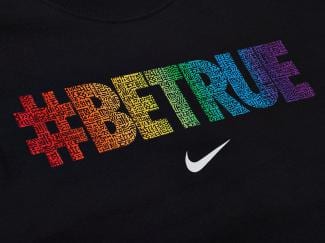
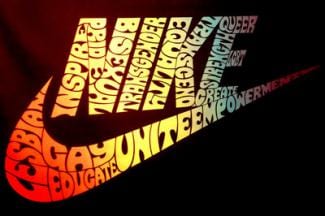
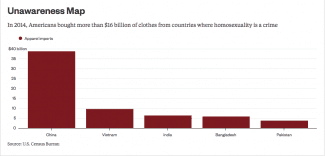
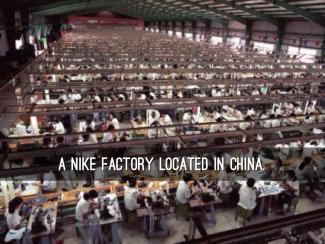
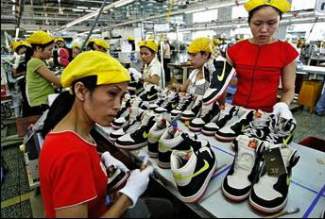
Not to sound too cynical,on a
Not to sound too cynical,on a Monday morning, but if we think that major corporations support LGBTQ causes for the good of society, we are slightly delusional. It is good for business. In some places Pride parades are nothing more than advertisements for businesses and politicians. There is also a bit of a fear factor. Would you want an organization such as HRC against you? They know their stuff and they take no prisoners which is great for us, but could prove costly if not fatal for a business if they oppose our issues. In many ways Nike's "Be True" campaign has given courage to high school and college athletes, but even this perpetuates a stereotype. In the school where I teach a Greek God in the making basketball player came out, and everyone applauded. He's a great guy and a pleasure to have in class, but his coming out did not change attitude. His teammates still admired him, girls still saw him as a big brother, and all the high school heroes supported him, but the GSA is still not taken seriously by the popular crowd and the lonely effeminate boy is still a target. Enough of my rant.